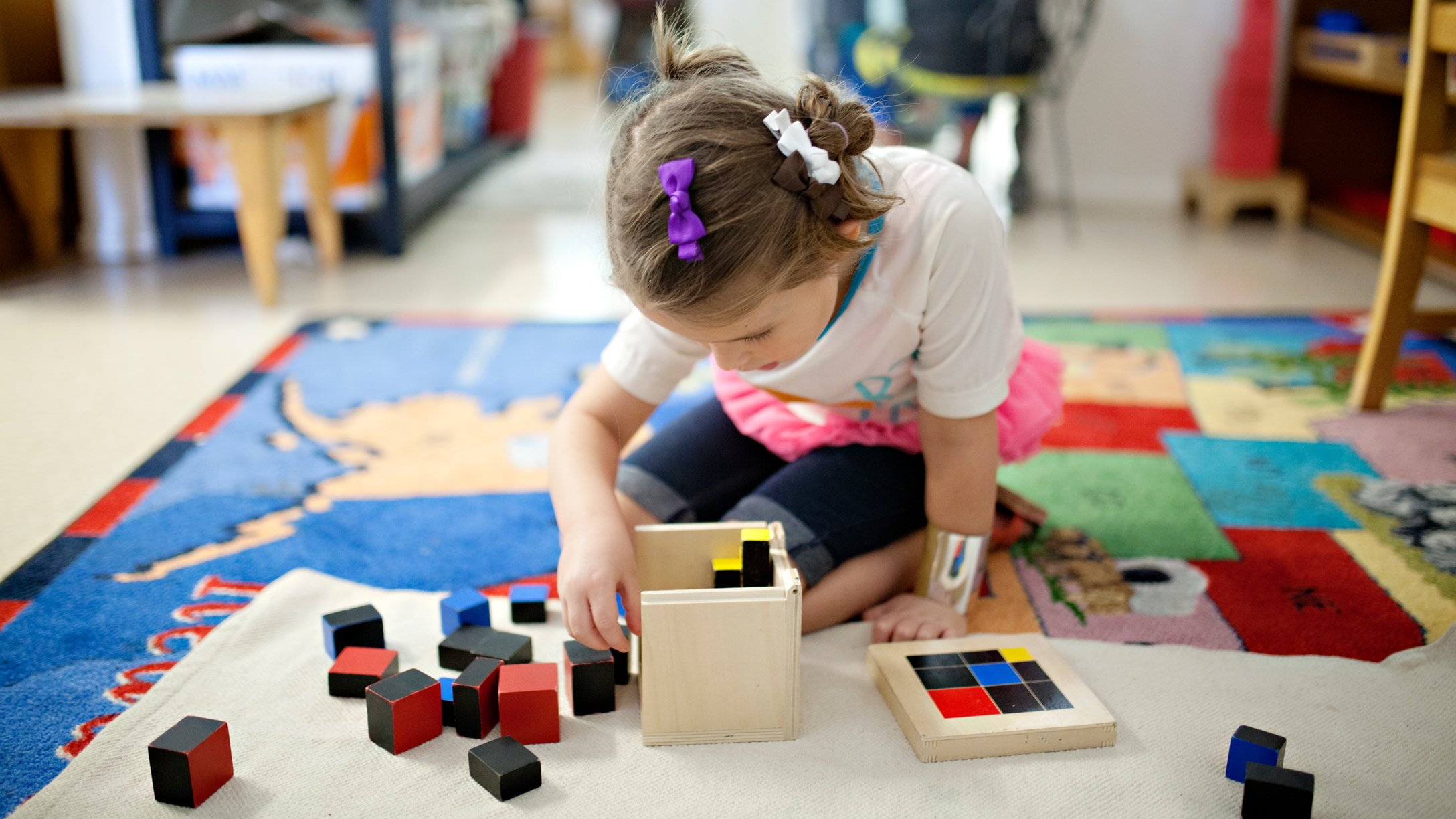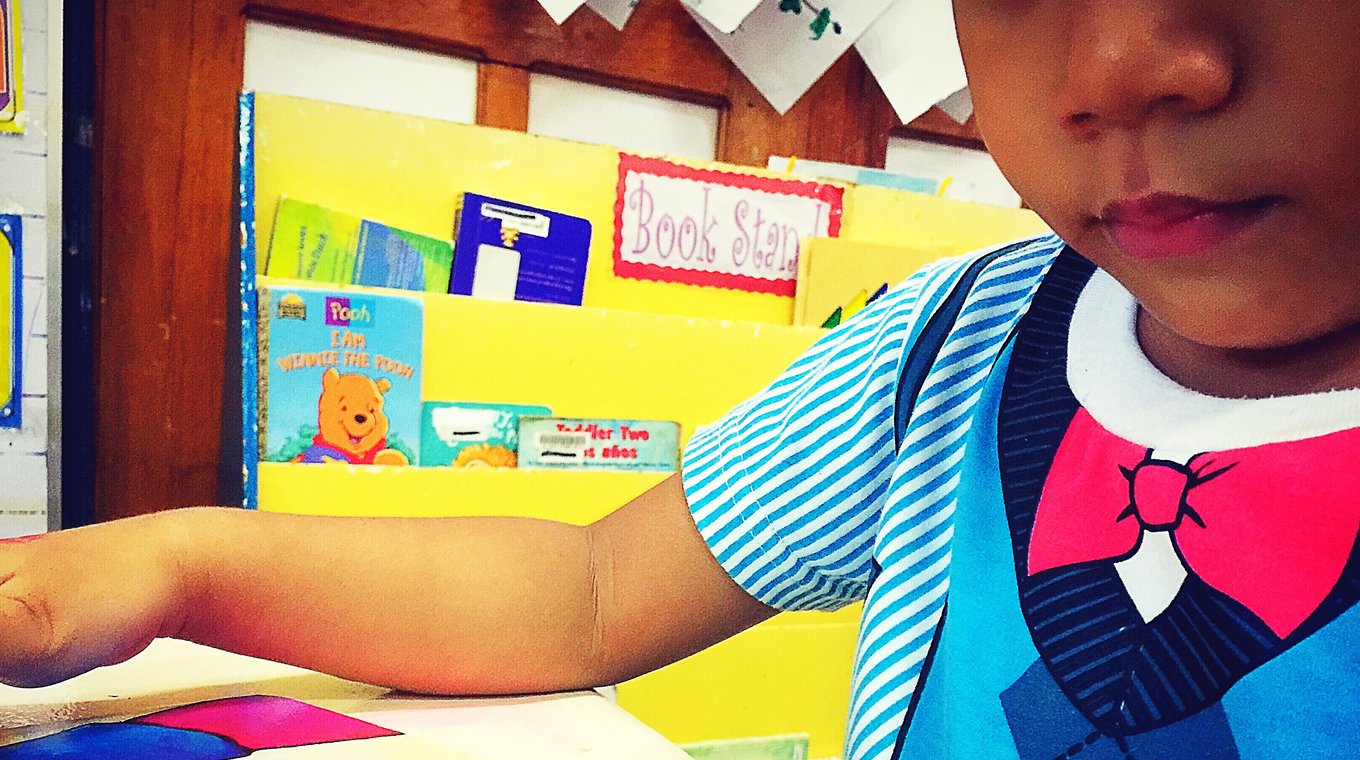
In this article
Our little ones grow so fast! One moment, you’re bringing them home from the hospital; the next, you’re picking out their outfit for their first day of kindergarten. In between, there’s preschool.
At this moment, though, as you gaze down at your sweet baby, it’s hard to imagine that there will be a time when their study little legs will carry them into a brightly colored preschool classroom and a whole new world of learning. In fact, you may not even be sure that you want to send them to preschool — after all, you haven’t even celebrated their first birthday yet! But it’s never a bad idea to gather information. After all, you don’t know what you don’t know.
Wide range of prices

According to the National Association of Child Care Resource & Referral Agencies (NACCRRA), the average cost of preschool ranges from $4,460 to $13,158 per year, depending on where in the United States you live.
This averages out to a monthly cost of $372 to $1100 per month, per child. At the lower amount of $372, your child might attend school two days a week for 4 hours. For $1100 per month, your child could attend school five days a week for a minimum of 6 hours. Again, this amount will vary depending on the school and the area. For example, in Missouri, you may pay $5,950 for a year of preschool — half the amount you will spend in New York.
The NACCRRA study points out that preschool rates can even vary within the same city. A private preschool that requires uniforms and offers several extracurricular programs may cost as much as $500 more than a traditional preschool down the street.
Affording preschool

That might be way more expensive than you expected! But there is good news: There is help out there to make preschool more affordable, no matter what your budget.
Many schools offer grants or scholarships for children to attend preschool. Some of these are set aside for financial need. Low-income parents may have also have government-funded programs or vouchers available to them through programs such as Head Start.
Other grants and scholarships are available for gifted children. These are highly competitive, but worth investigating. You also may be surprised to discover that many seemingly exclusive preschools have ample scholarship opportunities available.
Often, preschools have a sliding tuition scale based on what families earn; some schools offer a slight reduction for siblings, such as waiving the registration fee. Preschools have discounts for other circumstances, as well. For example, parents may save some money if they select a specific payment plan, or if they pay the tuition upfront. Another way to secure a lower price is by taking a job at the preschool to get an employee discount.
Some parents save money — without sacrificing quality — by joining preschool cooperatives. Families volunteer their time for a specific number of hours each week, taking on jobs such as cleaning, working with children, helping in the front office, keeping up the playground and more.
So, you see, there are ways to make preschool more affordable. Every avenue is worth investigating. It takes research, but hey — think about how much research you did just to figure out which crib to buy! A few more hours invested to help shape your child’s first real educational experience is worth it.
Is preschool worth the investment?

Now that you have a general idea of the costs, you may be wondering if the investment is really worth it. While there are differing schools of thought, most early childhood development experts agree that there are substantial benefits of early childhood education. Studies show children who attended preschool prior to entering kindergarten generally show higher intelligence, better school enrollment, behavior, and health.
There’s more: Preschool teachers can be a great resource for helping determine if children are meeting developmental milestones.
“Another benefit to attending a preschool with a solid understanding in play-based childhood development is early screening — which can lead to early intervention in the case of developmental/learning delays,” explained Merriam Saunders, a licensed family therapist with a specialty in ADHD, autism, and learning disabilities. “Preschool teachers come in contact with so many toddlers that they are often the first to notice if a child has a delay in comparison.”
Of course, the primary reason for preschool is to get children ready for kindergarten. That means your little one needs to be able to recognize letters, understand beginning sounds, recognize numbers, identify shapes and colors, manage scissors, and be ready to start reading — all before the school year begins.
“These are things I can remember learning in school!” mom Riss Courtade told Today. “That was what kindergarten was for — learning your ABCs, numbers, colors. It never occurred to me that she would need to know all of that just to enter kindergarten!”




